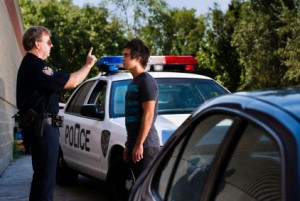If you are convicted of a DWI in North Carolina it is possible the judge may issue a probationary sentence. The question usually arises as to what exactly a probationar y sentence entails.
y sentence entails.
This can get a little complicated and is going to vary depending on what level DWI you are convicted of. The more serious the offense, the more likely it is you will have to serve at least some jail time and be subject to continuous alcohol monitoring. Courts are given ample discretion when it comes to determining probationary sentences; however the conditions that may be set out generally stay the same.
Continuous alcohol monitoring (CAM) is a condition that is required to be used for those who receive probation after being convicted of an Aggravated Level One DWI and may also be used for those convicted of a Level One or Level Two DWI.
The CAM system monitors the defendant to detect any alcohol consumption. If any alcohol is consumed than this condition of probation has been violated. The court may not impose this condition, however, if it is found that the defendant can not properly afford one. There are options for local governmental entities which may take responsibility for this cost, allowing the courts to still impose the CAM system.
Moreover, substance abuse assessment is also a mandatory condition to any level DWI offense. This assessment requires the defendant to go to an approved facility as determined by the Department of Health and Human Services to receive an assessment and treatment.
In North Carolina someone who is convicted of a Level Three through Level Five DWI, has no previous DWI conviction within seven years of the current conviction, and has completed the substance abuse assessment and treatment must receive unsupervised probation. The judge does however have some discretion to make the probation supervised in this scenario if he finds other issues in the defendant’s in record which suggest supervised probation is necessary. Even if someone is placed on supervised probation the judge may decide later to make it unsupervised once the defendant has paid his or her fines and completed community service.